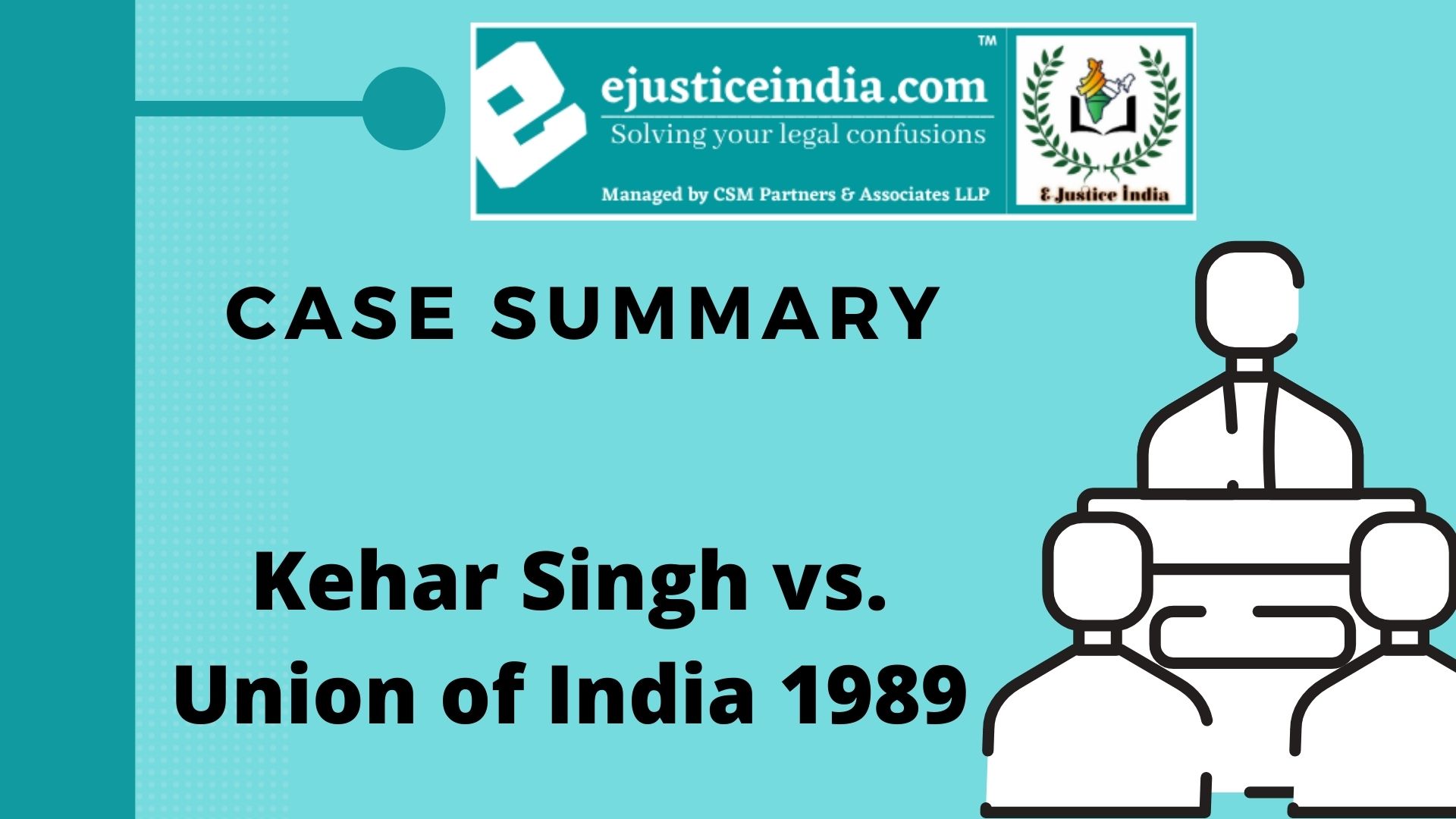Case Summary: Bharat Singh Vs. State Of Uttar Pradesh, on 17th December, 1998
Author: Cherie Dharmani
Equivalent Citation
17th December,1998.
Bench
Mr. G. B. Pattabaik and M . B. Shah.
Introduction
This case of Bharat Singh Vs. State Of Uttar Pradesh, on 17th December, 1998 is an appeal case against the Judgement given on 30th January, 1997 by the Allahabad High Court that arose out of the Sessions Trial, No. 213 of 1978, before the Sessions Judge, Manipur. The appellants, five of them who were rivals for the victim, were tried under Section 302 of the India Penal Code, which states that, whoever commits murder shall be punished with death, or imprisonment for life and shall also be liable to fine, and under Section 149 of the Indian Penal Code, which states that, if an offence is committed be any member of an unlawful assembly in prosecution of the common object of that assembly, or such as the members of that assembly knew likely to be committed in prosecution of that object, every person who at the time of committing of that offence, is a member of the same assembly is guilty of that offence. The appellants were also tried under Section 148 of the Indian Penal Code, which states that, whoever is guilty of rioting, being armed with deadly weapons or with anything which, used as a weapon of offence, is likely to cause death, shall be punished with imprisonment of either description for a term which may extend to three years, or with fine, or both.
Facts of the case
Jai Dayal, on 15th of October, 1977, at 1:00 P.M. was working on his land when the above mentioned 5 appellants came towards him, all armed and started with an open fire, that was the reason behind the death of the victim. The two prime eye-witnesses, Jai Prakash and Satyapal Singh, to save their lives, ran away as the fire began, but were on such a distance that they could easily see the events happening. An FIR was filed by Jai Prakash on the same day at 3:05 P.M.
After which, the trial was held in the Sessions Court where the learned Judge found them guilty. They further appealed in the High Court, where the court upheld the decision of the Sessions Court and found them guilty.
Issue
- Mr. U. R. Lalit the learned senior counsel, appearing for the appellant contented that the two eye- witnesses cannot be held as reliable source of evidence as they were common enemies of the accused.
- The counsel also stated that the two police guards should be examined, as they arrived at the crime scene and chased the appellant and thus, non-examination leads of them could lead to wrongful delivery of Justice.
- The counsel also found it questionable that the event occurred in broad day light and there were no other villagers to be present as witnesses, not even when there was an open firings stated.
- Lastly, the counsel felt that the investigation was not conducted in a fair manner and that the appellants did not get a chance to present their side of the story, and this ultimately lead to passing of the wrong judgement.
Judgement
Keeping in view the arguments kept forth and the evidences provided by both the eye-witnesses, the Supreme Court held that both, the Sessions Court and the Hight Court, had rightly relied upon the facts and the evidences on passing the judgment of conviction for the 5 appellants. The prosecution failed to provide enough evidences to prove their innocence and that, the conviction has been proved beyond any further question. Therefore, due to fining no merits in the appeal, the Supreme Court dismissed the appeal.


